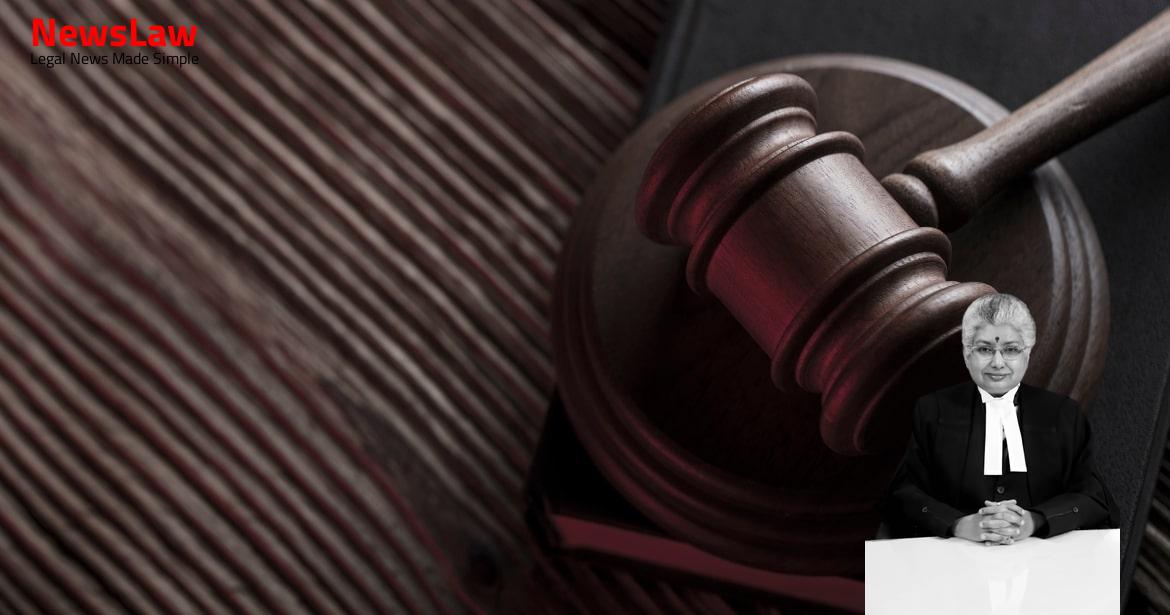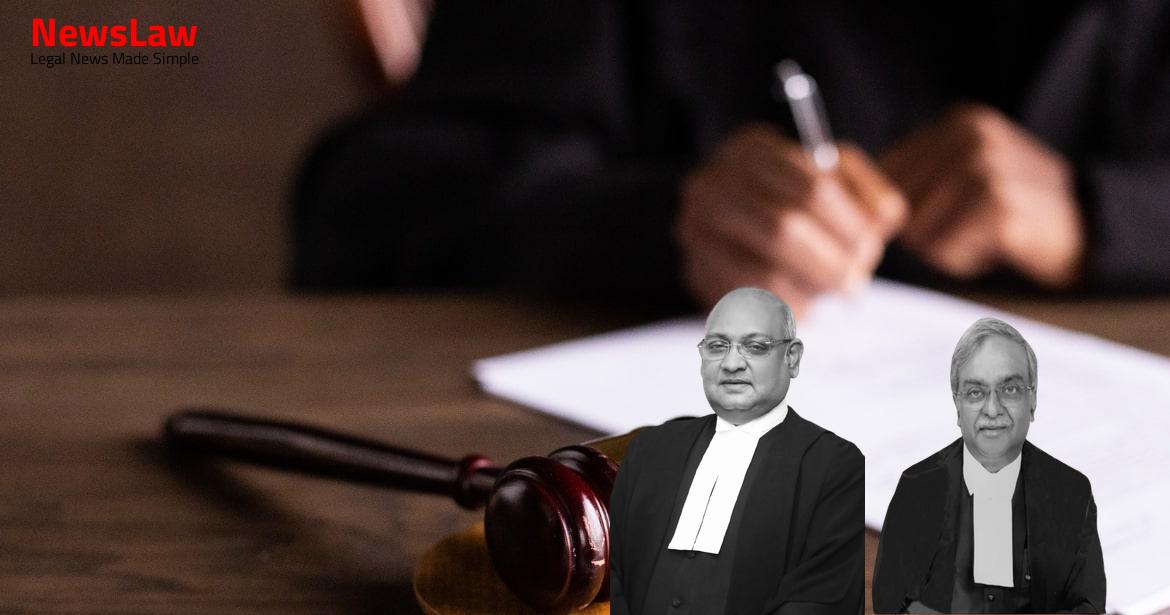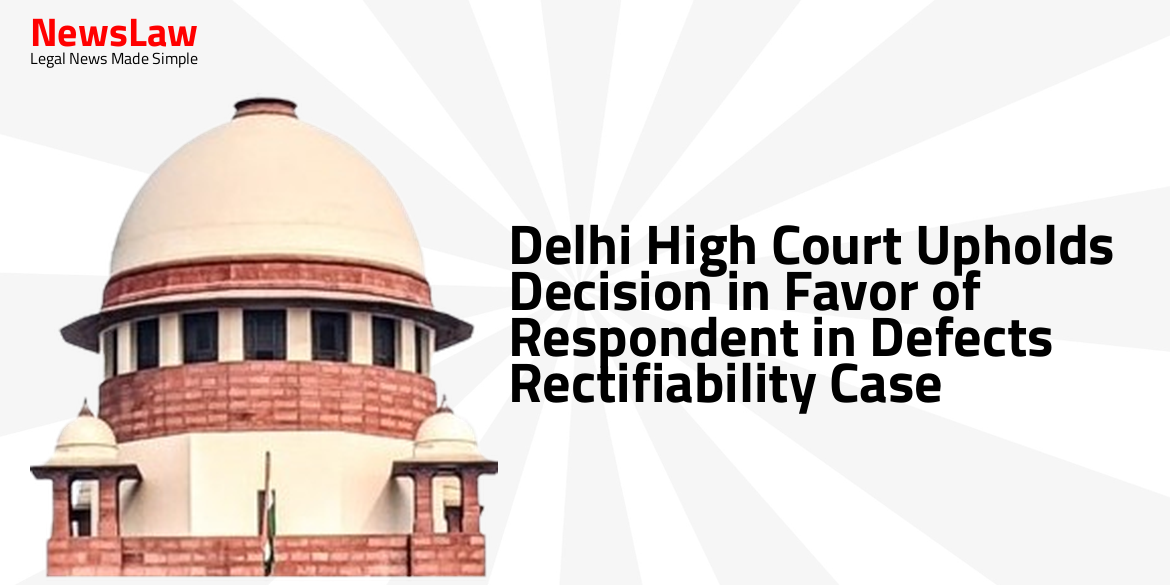In a recent case, the court conducted a detailed legal analysis on the issue of tax exemption for properties declared as enemy properties. The court’s examination focused on the transfer of ownership through statutory vesting in the Custodian for Enemy Property and the consequent exemption from property taxes. This blog post explores the nuanced legal discussions and conclusions reached by the court on this complex legal matter.
Facts
- The Court directed officers occupying buildings for residences or offices to vacate and hand over the properties to the Custodian.
- Individuals allotted properties by the Custodian or after 1965 were required to vacate.
- Union of India filed an appeal contesting the decision.
- Respondent No.1 was ruled in favor, directing the Custodian to surrender possession of the properties.
- Appellants preferred a civil appeal due to commercial activities conducted by the assessee.
- Appellants could not levy taxes on government or union properties as per the Constitution of India.
- Raja Mohammed Amir Mohammad Khan actively sought release of enemy properties owned by his late father.
- Enquiry conducted resulted in favor of respondent No.1 and other tenants.
- Assessee approached the High Court seeking relief from tax demands on the enemy property.
- Appellants contended that tax is payable by the assessee, not the Custodian or Central Government.
Issue
- The present Civil Appeal involves the question of whether the Union of India is entitled to exemption from property or other local taxes to Municipal Corporation under the Act of 1959 in case of transfer of ownership by statutory vesting in the Custodian for Enemy Property.
- The High Court of Allahabad allowed the Writ Petition filed by the assessee, holding that the assessee is exempt from property tax under the provisions of the Act of 1959.
- The main issue in the appeal is whether the statutory vesting of property as enemy property under the Enemy Property Act, 1968, amounts to expropriation leading to a change in ownership status by transfer to the Union of India.
Also Read: SC Clarifies: Choice of Depreciation Method Allowed Until Return Filing
Arguments
- The power to levy tax is plenary and not dependent on the usage of the property.
- Local taxes are payable to the local authority for the enemy property in question.
- The House Tax and Water Tax imposed on the respondent are deemed leviable by the appellant Municipal Corporation.
- The property in question is enemy property under the Custodian and subject to taxes to the Corporation.
- Any concessions or estoppels against the statute are not valid.
- The impugned judgment allowing Union property to be taxed based on an extended definition of ‘owner’ is in conflict with previous judgments and not valid.
- The property in question is defined as ‘property of the Union’ under Article 285 of the Constitution.
- The declaration of a property as enemy property is a result of the State’s police power.
- A concession made by the State in one case should not bind them in others as it goes against public interest.
- The interest or property of a private person is not exempt from property taxes under Article 285 of the Constitution.
- The Custodian under the Act is authorized to collect taxes and pay them to the local authority.
- The Municipal Corporation has omitted to disclose that the judgment in a case has been rendered nugatory due to the promulgation of an Ordinance and the enactment of the Enemy Property (Amendment and Validation) Act, 2017.
- The property in question belongs to a Pakistani National and is considered an undisputed enemy property vested in the Custodian for Enemy Property in India.
- The property belonging to the Union Government is exempt from state taxation according to article 285(1) of the Constitution of India.
- The vesting of enemy property in the Custodian does not transfer ownership to the Union or Central Government, but the Custodian is liable to pay taxes in accordance with the law.
- The subject property being enemy property vested with the Custodian is considered the property of the Union or Central Government and is exempt from taxation.
Analysis
- Section 18 of the Act deals with the transfer of property vested as enemy property under certain cases.
- The Central Government has the authority to dispose of enemy properties vested in the Custodian after receiving representation from an aggrieved person, subject to certain conditions.
- The Act defines ‘enemy property’ as any property belonging to or managed on behalf of an enemy.
- The Custodian has the power to manage enemy properties, make contracts, execute documents, and take necessary measures for their preservation.
- Certain provisions of the Act exempt enemy properties from attachment, seizure, or sale in court proceedings.
- The Act also contains provisions related to the payment of money to the Custodian and the issuance of certificates of sale for enemy immovable properties.
- The Act ensures that any action taken by the Custodian in pursuance of orders related to enemy properties remains valid and unaffected by changes in circumstances.
- Provisions in the Act prohibit the imposition of taxes on certain properties, including those vested in the Union of India.
- The Act allows for proceedings against companies whose assets vest in the Custodian and establishes a procedure for divestment of enemy properties.
- The Union of India was directed to vacate buildings occupied by certain officers and hand over possession to the respondent within eight weeks.
- Subsequent cases clarified that persons occupying properties declared as enemy property after 1965 must vacate.
- There can be no estoppel against the statute, according to a particular case.
- Compensation for deprivation of property is implicit in Article 300-A of the Constitution.
- The exemption from state taxation for Union properties is limited to property taxes only, not including commercial taxes.
- The High Court erred in equating commercial tenancy in Enemy Property with central government property.
- Vesting of property doesn’t always mean transfer of absolute title.
- State taxation on Union property is strictly prohibited.
- The concepts of ‘vest’ and eminent domain were discussed in relation to property acquisition.
- The immunity from taxation for Union property depends on ownership.
- Parliament has the authority to allow States to impose taxes on Union property.
- Deprivation of property does not always require compensation, especially in cases of control short of deprivation.
- Article 285 has two clauses where clause (1) applies only to Union properties
- Clause (2) of Article 285 is an exception and applies only to Union properties
- Enemy properties are not Union properties
- Respondent as occupier is liable to pay property tax as enemy properties are not Union properties
Decision
- No demand notices issued till date, therefore, not to be issued until 2024-2025 fiscal year
- Appellant authorized to levy and collect property tax, water tax, sewerage charges, and other local taxes from 2024-2025 onwards
- Prayer for appeal dismissal due to lack of merit and affirmation of the High Court’s order
- Impugned High Court order dated 29.03.2017 in Misc. Bench No.2317 of 2012 set aside
- No refund for taxes paid by respondent to appellant-authority under the Act of 1959
- Appeal allowed with the above terms
Case Title: LUCKNOW NAGAR NIGAM Vs. KOHLI BROTHERS COLOUR LAB PVT LTD (2024 INSC 135)
Case Number: C.A. No.-002878-002878 / 2024



